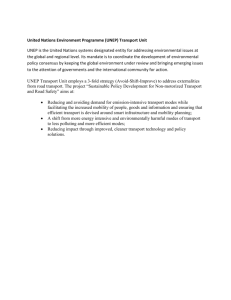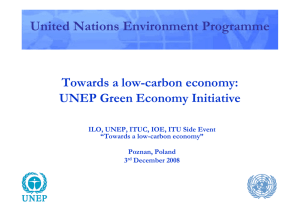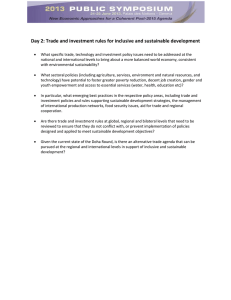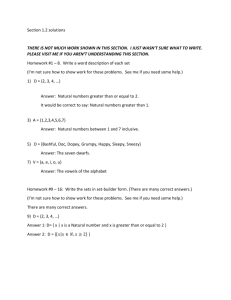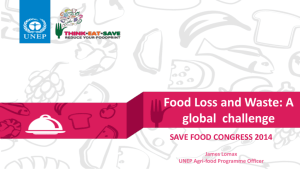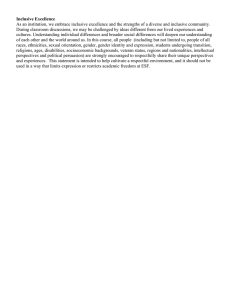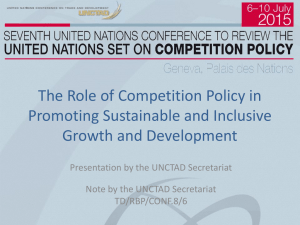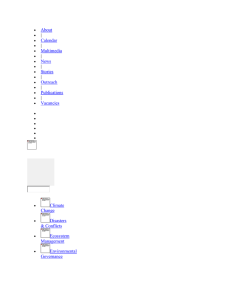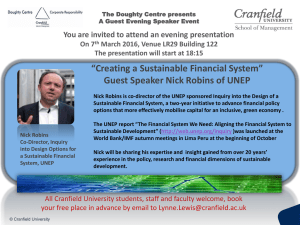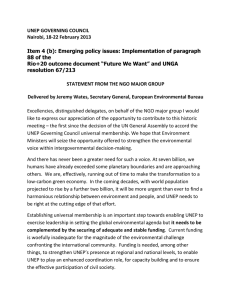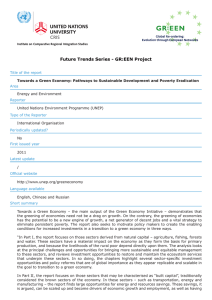Future Trends Series - GR:EEN Project
advertisement
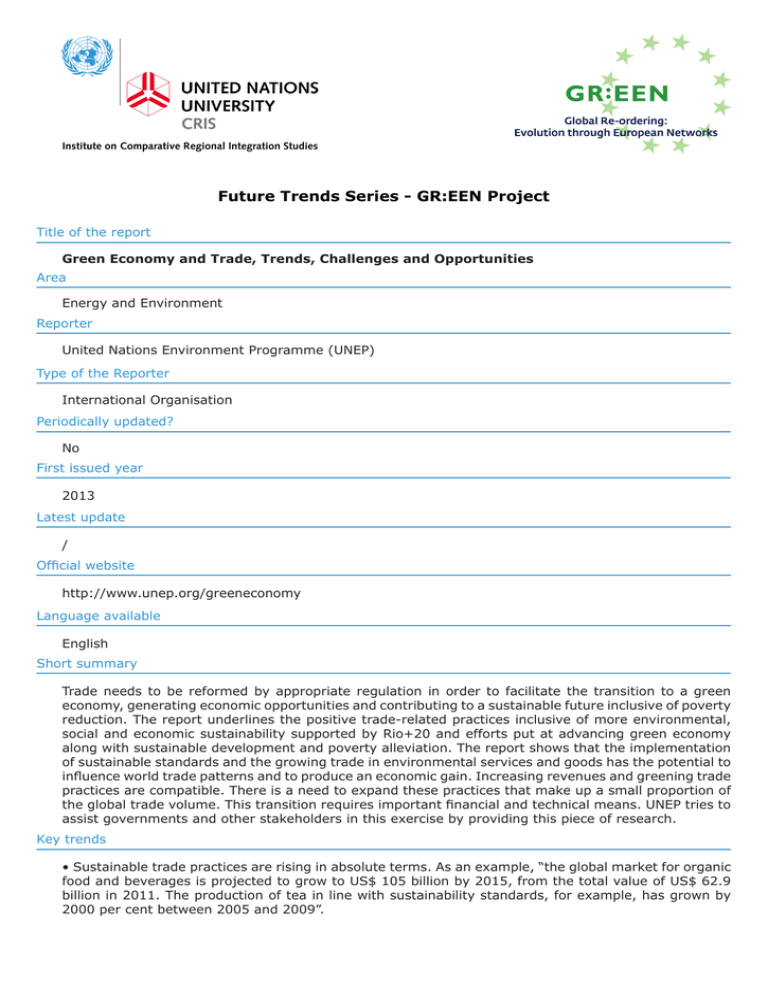
Future Trends Series - GR:EEN Project Title of the report Green Economy and Trade, Trends, Challenges and Opportunities Area Energy and Environment Reporter United Nations Environment Programme (UNEP) Type of the Reporter International Organisation Periodically updated? No First issued year 2013 Latest update / Official website http://www.unep.org/greeneconomy Language available English Short summary Trade needs to be reformed by appropriate regulation in order to facilitate the transition to a green economy, generating economic opportunities and contributing to a sustainable future inclusive of poverty reduction. The report underlines the positive trade-related practices inclusive of more environmental, social and economic sustainability supported by Rio+20 and efforts put at advancing green economy along with sustainable development and poverty alleviation. The report shows that the implementation of sustainable standards and the growing trade in environmental services and goods has the potential to influence world trade patterns and to produce an economic gain. Increasing revenues and greening trade practices are compatible. There is a need to expand these practices that make up a small proportion of the global trade volume. This transition requires important financial and technical means. UNEP tries to assist governments and other stakeholders in this exercise by providing this piece of research. Key trends • Sustainable trade practices are rising in absolute terms. As an example, “the global market for organic food and beverages is projected to grow to US$ 105 billion by 2015, from the total value of US$ 62.9 billion in 2011. The production of tea in line with sustainability standards, for example, has grown by 2000 per cent between 2005 and 2009”. • “The transfer of environmentally sound technologies, through trade- and investment-related channels, is also promoting economic and social development in developing countries. These channels allow the results of investments in research and development (R&D) to benefit a larger number of producers and consumers while facilitating natural resource protection and climate change mitigation and adaptation efforts.” • Global trade patterns show that the least developed countries have their exports dominated by natural resource-based materials. Existing sustainable trade markets and opening of new green markets are necessary for the future of green economy. Suggestions • New multilateral rules should be developed by the World Trade Organisation (WTO) along with more liberalisation of trade in environmental goods and services in order to create new opportunities to solve global problems • Regional trade agreements can be a source of great opportunities to promote sustainable practices and environmental regulation • Dialogue and capacity building are essential to overcome forthcoming challenges developing countries might face in embracing green economy • Public investments and technical assistance are crucial to ensure developing countries access greener international markets • National regulatory frameworks to support the greening of the economy are essential • Subsidies encouraging unsustainable trade needs to gradually disappear and be replaced by environmentally friendly measures as well as rules inclusive of social costs Methodology Research from secondary sources Reference to other trends reports? If yes, which reports? /
